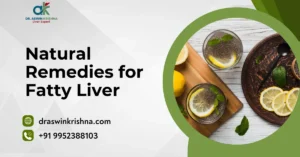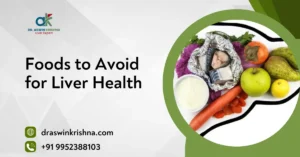When your liver becomes irritated or swollen, it struggles to perform its vital roles—filtering toxins, aiding digestion, and storing nutrients. This condition, known as liver inflammation, often develops quietly but leaves noticeable signals in the body. Common liver inflammation symptoms include fatigue, abdominal pain, and changes in skin or eyes, such as yellowing. Recognizing these early warning signs can make all the difference in preventing serious complications and protecting long-term liver health.
Categories of Liver Inflammation
Liver inflammation, medically referred to as hepatitis, can occur in several forms, each with distinct causes, severity, and treatment approaches. Understanding these categories helps in identifying liver inflammation symptoms early and choosing the appropriate medicine for liver inflammation or liver inflammation pain treatment.
- Acute Liver Inflammation: This type develops suddenly, often triggered by viral infections, toxins, or certain medications. Patients may experience rapid onset fatigue, nausea, and abdominal discomfort. Timely medical intervention can prevent progression to chronic liver damage.
- Chronic Liver Inflammation: When inflammation persists for six months or longer, it is classified as chronic. Conditions like autoimmune hepatitis or long-term alcohol use can lead to subtle but persistent signs and symptoms of liver inflammation, including mild jaundice, digestive issues, and prolonged weakness.
- Alcoholic Hepatitis: Excessive alcohol consumption irritates liver cells, causing inflammation. Individuals often report upper abdominal pain, tenderness, and general malaise. Liver inflammation pain treatment in such cases focuses on alcohol cessation and supportive therapies.
- Autoimmune Hepatitis: Here, the immune system mistakenly attacks liver cells, resulting in persistent inflammation. Symptoms can include fatigue, jaundice, and joint pain, requiring immunosuppressive medicine for liver inflammation under strict medical supervision.
- Drug-Induced Liver Injury: Certain medications or supplements can trigger liver inflammation. Patients may notice liver inflammation symptoms like nausea, dark urine, or yellowing of the skin. Early detection is crucial to prevent irreversible liver damage.
- Fatty Liver Disease (Non-Alcoholic or NAFLD): Excess fat in liver cells can provoke inflammation, even without alcohol intake. Common symptoms include bloating, fatigue, and discomfort in the upper right abdomen. Lifestyle modifications are often recommended alongside liver inflammation pain treatment.
This categorization underscores that liver inflammation is not a single disease but a spectrum of conditions, each with unique causes and management strategies.
Symptoms of Liver Inflammation
Recognizing liver inflammation symptoms early is crucial for preventing serious liver damage. The medical term for liver inflammation is hepatitis, and its signs and symptoms of liver inflammation can vary depending on severity and underlying cause.
- Persistent Fatigue and Weakness: One of the earliest indicators, ongoing tiredness may make even simple tasks exhausting. This fatigue occurs because an inflamed liver cannot efficiently process toxins or produce energy, impacting daily productivity and overall quality of life.
- Abdominal Discomfort and Pain: Inflammation often causes a dull or sharp pain in the upper right side of the abdomen. Some individuals may also experience bloating, nausea, or a sense of fullness after small meals, signaling the need for liver inflammation pain treatment.
- Jaundice (Yellowing of Skin and Eyes): A hallmark symptom, jaundice occurs when bilirubin builds up due to liver dysfunction. Alongside yellowing, liver inflammation symptoms may include dark urine and pale stools, which indicate bile flow obstruction or liver cell damage.
- Digestive Issues: Nausea, vomiting, and reduced appetite are common signs, often accompanied by unexplained weight loss. These symptoms reflect the liver’s impaired ability to metabolize nutrients and remove toxins.
- Swelling and Fluid Retention: Chronic liver inflammation may lead to fluid accumulation in the abdomen (ascites) and swelling in the legs. This occurs because liver dysfunction disrupts protein production and fluid balance.
- Bruising and Bleeding Easily: Reduced production of clotting factors in the liver can make minor injuries result in significant bruising or bleeding. Patients may notice nosebleeds, gum bleeding, or prolonged bleeding from cuts.
- Itchy Skin (Pruritus): Persistent itching is caused by bile salts accumulating under the skin, signaling liver dysfunction. This symptom often worsens at night and can significantly affect sleep quality and comfort.
These symptoms highlight the importance of recognizing early warning signs of liver inflammation to pursue timely medical evaluation and treatment.
Causes of Liver Inflammation
Liver inflammation, or hepatitis, can result from a variety of factors, each contributing to the liver inflammation symptoms experienced.
- Viral Infections: Hepatitis A, B, C, D, and E viruses directly damage liver cells, triggering inflammation. These infections often lead to fatigue, jaundice, and digestive discomfort.
- Excessive Alcohol Consumption: Chronic alcohol intake irritates and damages liver tissue, causing alcoholic hepatitis. Symptoms include upper abdominal pain, weakness, and digestive disturbances, often requiring liver inflammation pain treatment.
- Medications and Toxins: Certain prescription drugs, over-the-counter medicines, or environmental toxins can provoke liver inflammation. Early recognition and cessation of the offending agent are key, along with medicine for liver inflammation if needed.
- Autoimmune Disorders: The immune system may attack liver cells mistakenly, leading to chronic inflammation. Signs include fatigue, jaundice, and joint pain, requiring immunosuppressive therapy.
- Non-Alcoholic Fatty Liver Disease (NAFLD): Accumulation of fat in liver cells causes inflammation even without alcohol use. Overweight individuals or those with metabolic syndrome often experience mild liver inflammation symptoms such as bloating and weakness.
- Genetic and Metabolic Conditions: Rare inherited disorders can impair liver function and trigger inflammation. Early detection is critical to prevent progression and manage liver inflammation pain treatment effectively.
How is Liver Inflammation Diagnosed
Diagnosing liver inflammation involves a combination of medical history, physical examination, and targeted tests to identify the cause and severity of liver inflammation symptoms.
- Blood Tests: Liver function tests measure enzymes, bilirubin, and proteins, revealing signs and symptoms of liver inflammation. Elevated ALT and AST levels indicate liver cell damage, helping detect both acute liver inflammation and chronic issues.
- Imaging Studies: Ultrasound, CT scans, or MRI can detect liver swelling, fatty deposits, or structural changes. These tools help confirm hepatitis inflammation of the liver and assess the extent of damage.
- Liver Biopsy: In certain cases, a small tissue sample is examined to determine the exact cause of inflammation. This test guides precise treatment decisions and evaluates disease progression.
- Symptom Assessment: Persistent fatigue, jaundice, abdominal discomfort, and digestive problems are reviewed alongside lab results. Tracking these liver inflammation symptoms aids in early diagnosis and management.
- Home Monitoring: While professional evaluation is essential, individuals can observe changes in skin color, urine, stool, and energy levels as part of recognizing early signs and symptoms of liver inflammation.
Complications of Liver Inflammation
If left untreated, liver inflammation, or hepatitis, can lead to serious health issues.
- Cirrhosis: Chronic inflammation can scar liver tissue, reducing its ability to function. This may result in fatigue, fluid retention, and increased bleeding risk, requiring long-term management.
- Liver Failure: Severe inflammation may cause the liver to stop functioning, leading to life-threatening symptoms like confusion, jaundice, and swelling. Liver inflammation pain treatment becomes critical in such cases.
- Portal Hypertension: Scarring from inflammation increases pressure in liver blood vessels, causing varices and fluid buildup in the abdomen.
- Liver Cancer: Persistent liver inflammation, especially from chronic hepatitis or NAFLD, can increase the risk of developing liver cancer over time.
- Metabolic and Nutritional Issues: Impaired liver function affects nutrient processing, leading to deficiencies, fatigue, and digestive disturbances. Medicine for liver inflammation may help manage these complications.
Treatment of Liver Inflammation
Managing liver inflammation symptoms involves a combination of medications, lifestyle changes, and supportive therapies.
- Medications: Doctors may prescribe medicine for liver inflammation such as antivirals for hepatitis, immunosuppressants for autoimmune hepatitis, or other targeted drugs to reduce liver damage.
- Lifestyle Modifications: Avoiding alcohol, adopting a balanced diet, and maintaining a healthy weight help reduce liver stress and support recovery. These measures complement liver inflammation pain treatment and improve overall liver function.
- Pain and Symptom Management: Over-the-counter pain relievers, under medical supervision, can ease discomfort. Regular monitoring ensures hepatitis inflammation of the liver is controlled and complications are prevented.
- Home Remedies: Consuming antioxidant-rich foods, staying hydrated, and gentle exercise may support liver health. While not a replacement for medical care, these practices aid recovery alongside prescribed treatments.
What Can Be Done to Prevent Liver Inflammation
Preventing liver inflammation focuses on protecting the liver from damage and maintaining overall health.
- Healthy Lifestyle Choices: Limiting alcohol, avoiding tobacco, and eating a balanced diet rich in fruits, vegetables, and whole grains can reduce liver inflammation symptoms and support liver function.
- Vaccinations and Disease Prevention: Vaccines for hepatitis A and B help prevent viral infections that cause liver inflammation. Regular health check-ups allow early detection of acute liver inflammation.
- Safe Medication Use: Taking medications only as prescribed and avoiding unnecessary supplements lowers the risk of hepatitis inflammation of the liver.
- Regular Exercise and Weight Management: Maintaining a healthy weight prevents fatty liver disease, which can trigger liver inflammation. Combined with proper diet, this reduces the need for liver inflammation pain treatment.
Conclusion
Recognizing liver inflammation symptoms early can make a significant difference in preventing serious complications. Fatigue, digestive discomfort, and changes in skin or eyes are key signals that the liver needs attention. Timely medical care, lifestyle adjustments, and appropriate medicine for liver inflammation can restore liver health and improve quality of life. Staying proactive with diet, exercise, and regular check-ups empowers you to protect your liver and maintain long-term wellness.
Read also Causes of Weight Gain.



